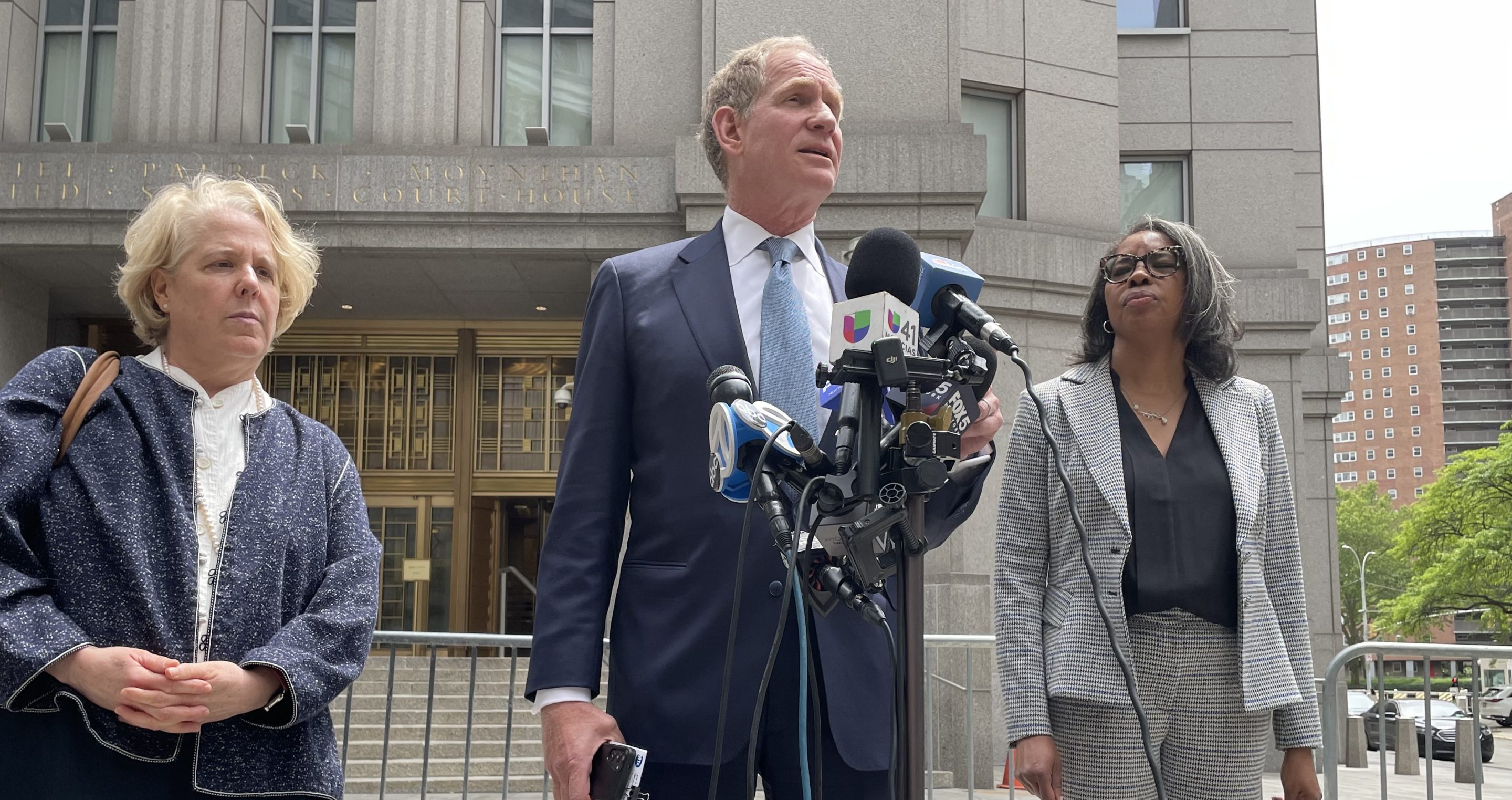New York is free to keep tolling drivers entering Lower Manhattan — without fear of federal retribution — thanks to a federal judge's order on Tuesday barring the U.S. Department of Transportation from implementing its threat to retaliate against the state.
Judge Lewis Liman handed down a decision preventing Transportation Secretary Sean Duffy from beginning "compliance measures" — such as withholding certain federal funds and approvals for projects — if congestion pricing continued past May 21. Liman's temporary restraining order prevents the federal government from any retaliatory measures until the end of the day on June 9.

Liman issued the TRO on the grounds that the MTA has a strong chance of winning its broader lawsuit against Duffy over his attempt to rescind federal approval for congestion pricing that was issued late in the Biden years.
"Plaintiffs demonstrated likelihood of success on claims that the Secretary didn't have the authority to terminate the ... agreement," Liman said, reading from his ruling.
Liman also said that the MTA and New York demonstrated that the agency would suffer irreparable harm if the restraining order wasn't granted, since the state and agency would be forced to choose between blowing a hole in its budget and upending plans to upgrade the transit system by turning the tolls off, or foregoing federal approvals for other necessary projects. In addition, Liman said, the threat of retaliation amounted to an attack on state sovereignty.
"This undermines the authority of a sovereign state to authorize policy decided on by its elected representatives," Liman said.
Liman so intently grilled Department of Justice attorney Charles Roberts that it was clear that the judge didn't put much stock in the legal rationale to end congestion pricing — notably Roberts's argument that a change from the Biden administration to the Trump administration means that the incoming agency can change priorities and therefore flip its earlier permission.
We've gotten to the point where the Times has to include a promise from the Trump administration to abide by a judge's order because of the administration's history of simply ignoring judges' orders: www.nytimes.com/2025/05/27/n...
— Gersh Kuntzman (@realgershkuntzman.bsky.social) 2025-05-27T18:52:45.840Z
Almost since day one of his tenure at U.S. DOT, Duffy has claimed the ability to cancel the agreement between the federal government and New York State on the grounds that the statute that created the Value Pricing Pilot Program doesn't allow for congestion pricing (though, in fact, it does). And in his April letter, Duffy wrote that the FHWA policy going forward was not to support tolling projects that gave money to public transit. But each of those decisions was made after Duffy's predecessor determined that creating a cordon-pricing zone and using the resulting tolls to fund better public transit were legal.
Roberts argued that every time an administration changed, agency heads have the authority to do complete 180 on previously approved and contractually agreed on projects, which left the judge amazed.
"Why would any state or city ever invest in infrastructure projects if that was case?" asked Liman, ironically a Trump appointee. "This case is about is there going to be rule of law so that people launch public works projects without the rug being pulled out from their feet."
Roberts also failed to impress the judge when he argued that federal money was actually at stake in this case because cars owned by the federal government get tolled when driven into Lower Manhattan. A bemused Liman then asked how Roberts got to New York, forcing the federal attorney to admit that he took Amtrak.
With the federal government agreeing to a case schedule that that could drag through to October, but also demanding the MTA end congestion pricing before the case is over, Liman pushed both sides to move faster. The judge specifically noted that it was difficult for him to understand what harms the U.S. DOT was experiencing while congestion pricing remained in effect since the agency has not filed much paperwork to defend itself in the MTA's lawsuit.
After the ruling, MTA leaders said that they were ready to get the case over with.
"We can go home and write the final brief and turn it in tomorrow if the other side agreed to the most rapid briefing schedule," said MTA Chairman and CEO Janno Lieber. "We're ready to go."






